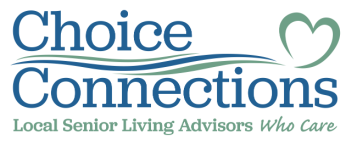Begin the Year Strong
Each year, January signals a fresh start for the upcoming year. However, many of us feel pressured to make resolutions – exercise, eat healthier, be more social etc. – it always sounds good, but the reality is, making changes is challenging.
Like the general population, older adults tend to settle into a lifestyle that fits their wants, needs and capabilities. What sets us apart, however, is our aging bodies – with that comes changes that are necessary for both physical and cognitive health.
Some medical conditions and medications can make getting proper nutrition difficult. They can also interfere with exercise, muscle strength and appetite. Conditions like diabetes and heart disease often require strict adherence to special diets.
For many older adults, however, proper nutrition means moderation and the willingness to try some new foods like lean protein, plenty of fruits and vegetables while limiting others such as added sugar.
Even though nutrition is challenging as we age, it is more important than when you were younger. “As you age, your body can have a harder time with certain functions, like maintaining your heart health, kidney function, bone regeneration and more,” Cleveland Clinic’s Dr. Hall explains, “But getting proper nutrition — like enough protein and the proper number of vitamins and other nutrients — is an important part of helping to keep those systems and others strong and functioning at their best.”
How a healthy diet plays a big role in your overall health:
- Brain and memory function.
- Heart health.
- Bone strength.
- Muscle tone.
- Immunity.
- Gastrointestinal functioning.
- Mental health and well-being.
Where to start
- Try to eat your meals around the same time each day.
- Plan your meals ahead – that leads to more “focused” grocery shopping – stick to the list.
- Don’t skip meals – even if you can’t eat a full one, have healthy snacks available.
- When possible, eat with others –it makes mealtime more enjoyable and is good for your mental health. This is one of the many benefits of living in a senior community!
Healthy Habits
- Hydration: Drink six 8-ounce glasses of water or other beverages daily (if you are not on a fluid-restricted diet). Limit drinks that contain caffeine and alcohol.
- Fiber – wholegrains, raw fruits and vegetables.
- Healthy fats: Salmon, avocado, olive oil, walnuts, coconut oil, flax seed.
- Season dishes with garlic, herbs and other spices. Choose foods that are low in sodium or have no added salt.
- Limit foods like white bread, rice and potatoes (they have low nutritional value)
- Maximize your intake of Vitamin D – some benefits:
- Reduced risk of osteoporosis, falls, and fractures.
- Depression management.
- Improved mortality.
- Helps with bone development, nerve function and immune health.
It is always important to know your own health status -that often dictates what is the healthiest approach for you personally. Talk with your doctor – they may be able to make recommendations for say the “Mind Diet,” “Mediterranean Diet,” low fat and low carb diets. Unfortunately, there is no one-size fits all approach to healthy eating.
If you are not sure where to start, Nutritional Weight and Wellness offers nutritional counseling, classes and more. With office locations in Saint Paul, Maple Grove, Wayzata, Eagan, Woodbury, finding one close to you would be convenient. Your insurance may even cover their services. You can learn more by visiting www.weightandwellness.com
When you live in senior housing, nutritious meals are often prepared in the on-site restaurant. As stated above, eating with others is more enjoyable and a great way to meet new friends.
Enjoy a happy and healthy 2025!

